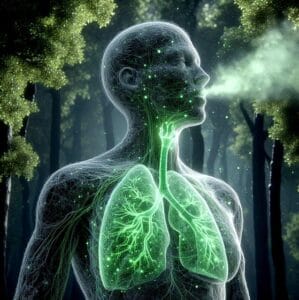Table of Contents
ToggleIntroduction to Stress Physiology
Stress is a natural response that the body undergoes when faced with challenges or threats. It can manifest in various forms, from physical to psychological, and can vary in intensity and duration.
Stress physiology is a fascinating field that delves into how the body responds to stressors, both internal and external. Understanding the physiological mechanisms involved in stress can provide valuable insights into how stress impacts various systems within the body. This section aims to explore the basics of stress physiology, shedding light on the intricate processes that occur when the body encounters stress.
how the body responds to stress
When an individual experiences stress, the body initiates a complex chain of events known as the stress response. This response involves the activation of the hypothalamic-pituitary-adrenal (HPA) axis and the sympathetic-adrenal-medullary (SAM) axis.
Key hormones such as cortisol and adrenaline play crucial roles in the stress response. These hormones help the body mobilize energy, increase heart rate, and sharpen focus in preparation to cope with the stressor.
Prolonged or chronic stress can have significant effects on various physiological systems, including the immune, cardiovascular, and nervous systems. Understanding these effects is essential in comprehending the long-term impact of stress on health.
The body also has mechanisms to adapt to stress, known as allostasis. This adaptive process helps the body maintain stability in the face of stressors and restore balance once the stressor has passed.
The Role of the Brain in Stress Response
The brain plays a vital role in the body’s stress response, orchestrating a complex series of physiological and psychological reactions. When an individual encounters a stressor, such as a challenging situation or a perceived threat, the brain’s amygdala, a region responsible for processing emotions, triggers the release of stress hormones like cortisol and adrenaline. These hormones prepare the body for the “fight or flight” response, increasing heart rate, blood pressure, and energy levels to deal with the perceived danger.
The brain communicates with the rest of the body through the HPA axis(,Hypothalamus-Pituitary-Adrenal )a network of interactions between the hypothalamus, pituitary gland, and adrenal glands. When the brain detects stress, it signals the hypothalamus to release corticotropin-releasing hormone (CRH), which prompts the pituitary gland to produce adrenocorticotropic hormone (ACTH). ACTH then stimulates the adrenal glands to release cortisol, the primary stress hormone.
ThePrefrontal Cortex and Hippocampus,responsible for decision-making and problem-solving, helps regulate stress responses by modulating the activity of the amygdala. In contrast, the hippocampus, involved in memory and learning, plays a role in inhibiting the stress response once the threat has passed. Chronic stress can impair the function of these brain regions, leading to persistent stress and potential mental health issues.
In conclusion, the brain’s intricate mechanisms play a crucial role in the body’s response to stress. By understanding how the brain processes and manages stress, individuals can develop strategies to cope effectively and maintain overall well-being.

Hormones Involved in the Stress Response
In response to stress, the body activates a complex system involving various hormones that help it adapt and cope with the challenging situation. These hormones play crucial roles in regulating the body’s physiological response to stress.
- Cortisol: Often referred to as the “stress hormone,” cortisol is released by the adrenal glands in response to stress. It helps the body mobilize energy to deal with the stressor effectively. Cortisol also plays a role in controlling blood sugar levels and modulating metabolism.
- Epinephrine and Norepinephrine: Also known as adrenaline and noradrenaline, these hormones are released by the adrenal glands and nerve endings in response to stress. They help increase heart rate, blood flow to muscles, and alertness, preparing the body for a fight-or-flight response.
- Adrenaline: This hormone, produced in the adrenal medulla, acts rapidly in response to stress to increase heart rate, blood pressure, and energy supplies to muscles, enhancing physical performance during stressful situations.
- ACTH (Adrenocorticotropic Hormone): ACTH is released by the pituitary gland in response to stress and stimulates the release of cortisol from the adrenal glands. It plays a vital role in coordinating the hormonal response to stress.
- Oxytocin: Often called the “love hormone,” oxytocin is released during stress to help counteract the effects of cortisol and promote bonding and social interactions. It has calming and stress-reducing effects on the body.
Chronic Stress and its Effects on Health
Chronic stress can have a profound impact on an individual’s health and well-being. Prolonged exposure to stress can lead to a variety of physical and mental health issues, including:
- Cardiovascular Problems: Chronic stress is linked to an increased risk of heart disease, high blood pressure, and other cardiovascular issues. The constant release of stress hormones can strain the heart and blood vessels over time.
- Weakened Immune System: The body’s immune response can be compromised by chronic stress. This can make individuals more susceptible to infections and illnesses, as well as slow down the healing process.
- Digestive Disorders: Stress can disrupt the digestive system, leading to issues such as irritable bowel syndrome, indigestion, and other gastrointestinal problems. This can impact nutrient absorption and overall digestive health.
- Mental Health Concerns: Chronic stress is strongly associated with anxiety, depression, and other mental health disorders. The constant activation of the body’s stress response can affect neurotransmitters and brain function, contributing to these conditions.
- Weight Gain: Stress can lead to unhealthy eating habits and cravings for comfort foods high in sugar and fat. This, combined with the release of cortisol, a stress hormone that can promote fat storage, can contribute to weight gain over time.
Individual Differences in Stress Response
Individuals vary in how they respond to stress due to a combination of genetic, environmental, and psychological factors. These differences play a significant role in how stress impacts overall well-being and health outcomes. Here are some key points to consider regarding individual differences in stress response:
- Genetic Factors: Genetic variations can influence how individuals respond to stress. Certain genes may predispose individuals to be more reactive to stressors or less resilient in the face of challenges.
- Environmental Influences: Factors such as early life experiences, socioeconomic status, and access to social support can all impact how individuals respond to stress. Those who have experienced trauma or adversity may be more sensitive to stressors later in life.
- Psychological Factors: Personality traits, coping mechanisms, and cognitive appraisal of stress can also influence how individuals respond to stressful situations. For example, individuals with high levels of neuroticism may be more prone to experiencing heightened stress responses.
- Resilience: Some individuals demonstrate a greater ability to bounce back from stressful events, showing resilience in the face of adversity. Factors that contribute to resilience include strong social support networks, positive coping strategies, and a sense of purpose or meaning in life.

Psychological Interventions for Managing Stress
Stress management through psychological interventions is crucial for overall well-being. Here are some effective strategies:
- Cognitive-Behavioral Therapy (CBT):
CBT helps individuals identify and change negative thought patterns that contribute to stress. It teaches skills to cope with stressful situations more effectively.
- Mindfulness-Based Stress Reduction (MBSR):
MBSR involves techniques like meditation and yoga to increase awareness of the present moment. This practice can reduce stress and improve mental clarity.
- Relaxation Techniques:
Deep breathing exercises, progressive muscle relaxation, and guided imagery can help calm the mind and body, reducing stress levels.
- Journaling:
Writing about stressful experiences can provide insight and promote emotional processing, leading to stress relief.
- Social Support:
Connecting with friends, family, or support groups can help individuals feel understood and cared for, reducing the impact of stress.
- Time Management:
Learning to prioritize tasks, set boundaries, and delegate responsibilities can help individuals feel more in control and less overwhelmed by stressors.
- Self-Care Practices:
Engaging in activities that promote self-care, such as exercise, hobbies, or spending time in nature, can boost overall well-being and resilience to stress.
By incorporating these psychological interventions into daily life, individuals can better manage stress and improve their mental and emotional health.
Physical Strategies for Stress Reduction
Physical strategies can play a crucial role in reducing stress by helping the body relax and unwind. Here are some effective ways to incorporate physical activities into your stress management routine:
- Exercise Regularly: Engaging in physical activities like walking, running, or yoga can help reduce stress levels by releasing endorphins, which are known to improve mood.
- Practice Relaxation Techniques: Activities such as deep breathing, progressive muscle relaxation, and meditation can help calm the body and mind, reducing the physical symptoms of stress.
- Prioritize Sleep: Getting an adequate amount of high-quality sleep is essential for reducing stress and promoting overall well-being. Creating a bedtime routine and ensuring a comfortable sleep environment can aid in stress reduction.
- Maintain a Balanced Diet: Eating a balanced diet rich in fruits, vegetables, whole grains, and lean proteins can support the body in managing stress. Avoiding excessive caffeine, sugar, and processed foods can also help regulate stress levels.
- Stay Hydrated: Dehydration can exacerbate stress levels, so it is essential to stay hydrated by drinking plenty of water throughout the day.
- Engage in Physical Recreation: Participating in recreational activities such as sports, dancing, or hiking can provide a fun and effective way to reduce stress while promoting physical health.
The Importance of Self-Care in Stress Management
Maintaining a proper self-care routine is crucial in effectively managing stress. When individuals prioritize self-care, they are better equipped to handle stressful situations and prevent the negative impacts of chronic stress on their body and mind.
Why self-care is important in stress management:
Physical well-being: Engaging in regular exercise, getting enough sleep, and eating a balanced diet are essential components of self-care that contribute to overall physical health. When the body is well-nourished and rested, it is more resilient to the effects of stress.
- Emotional balance: Practices such as mindfulness, meditation, or spending time on hobbies can help individuals regulate their emotions and maintain a sense of calm. This emotional balance is key in reducing the impact of stress on mental health.
- Improved resilience: Self-care activities can help build resilience, allowing individuals to bounce back more easily from stressors. Taking time for oneself and engaging in activities that bring joy and relaxation can help buffer the effects of stress.
- Enhanced focus and productivity: When individuals prioritize self-care, they are better able to concentrate and perform tasks effectively. This can lead to increased productivity and a reduced sense of being overwhelmed by stressors.
Conclusion
The body’s stress response is a complex physiological process involving the brain, nervous system, and various hormones.
The hypothalamus initiates the stress response by signaling the release of cortisol and adrenaline, which prepare the body for perceived threats.
Chronic stress can have detrimental effects on both physical and mental health, leading to issues like high blood pressure, weakened immune system, and anxiety.
Understanding the physiology of stress is crucial for implementing effective stress management techniques, such as mindfulness, exercise, and social support.
By addressing stress at its root physiological causes, individuals can improve their overall well-being and quality of life.
Remember to prioritize self-care and seek professional help if stress becomes overwhelming or persistent.












